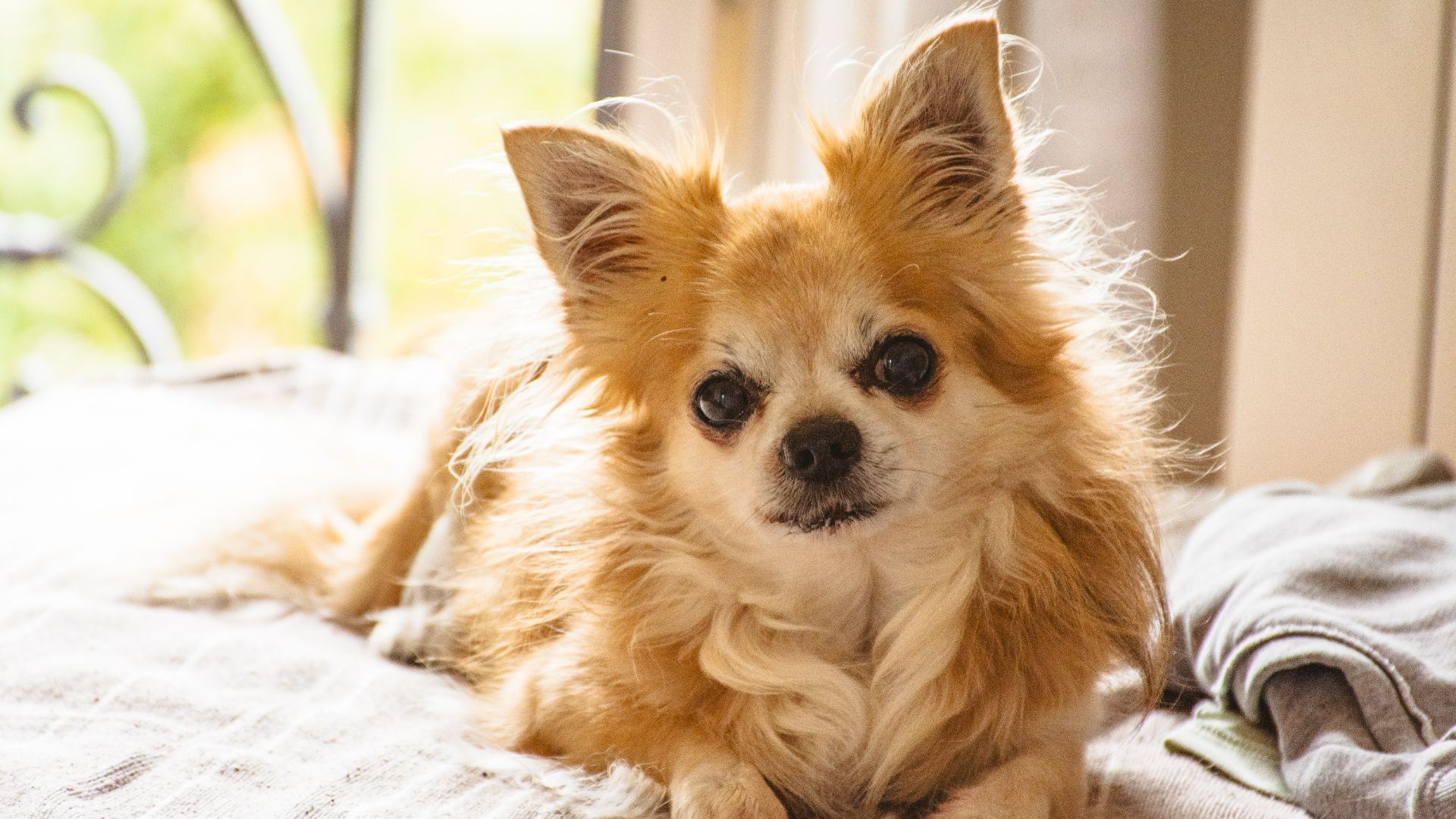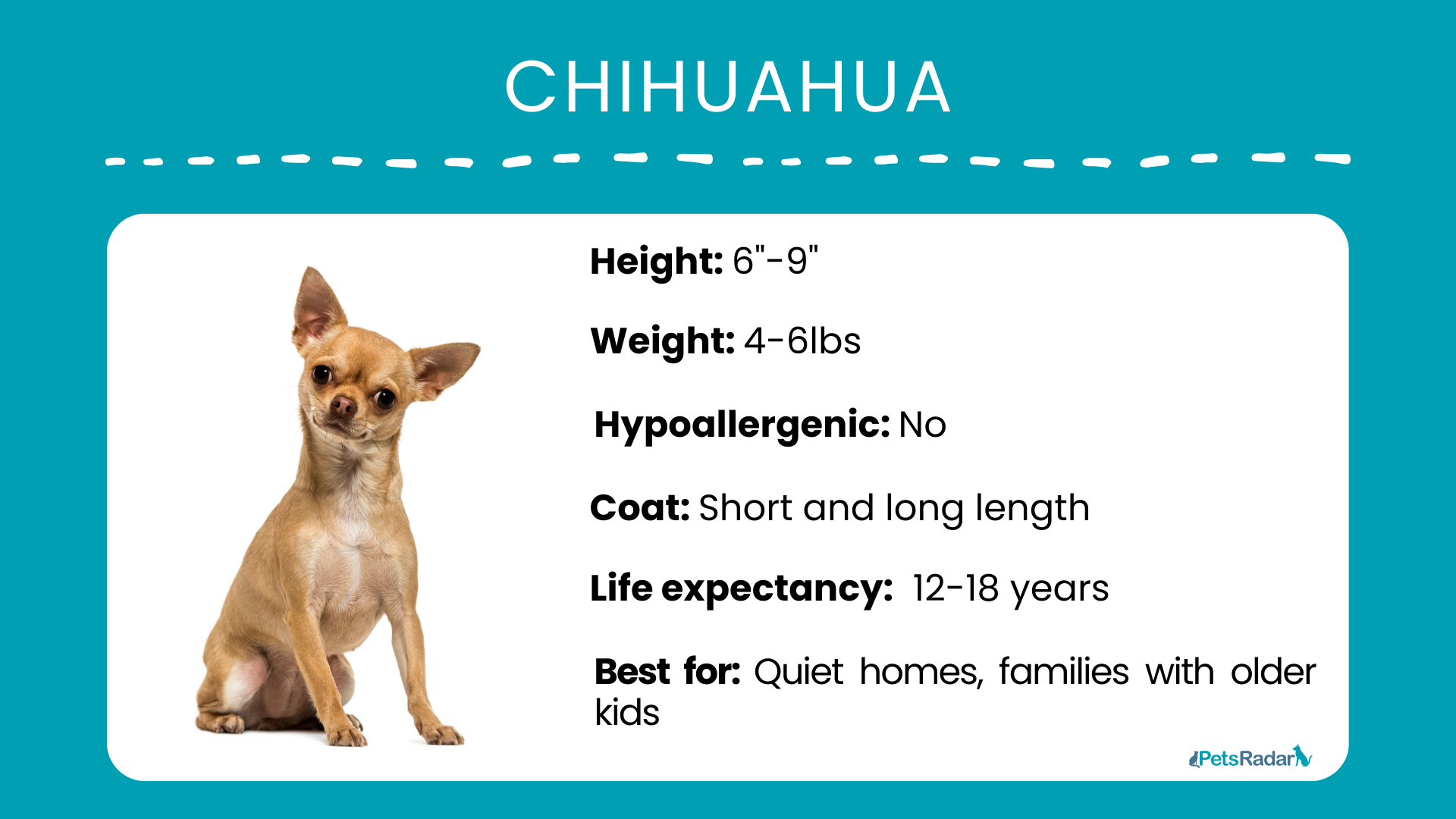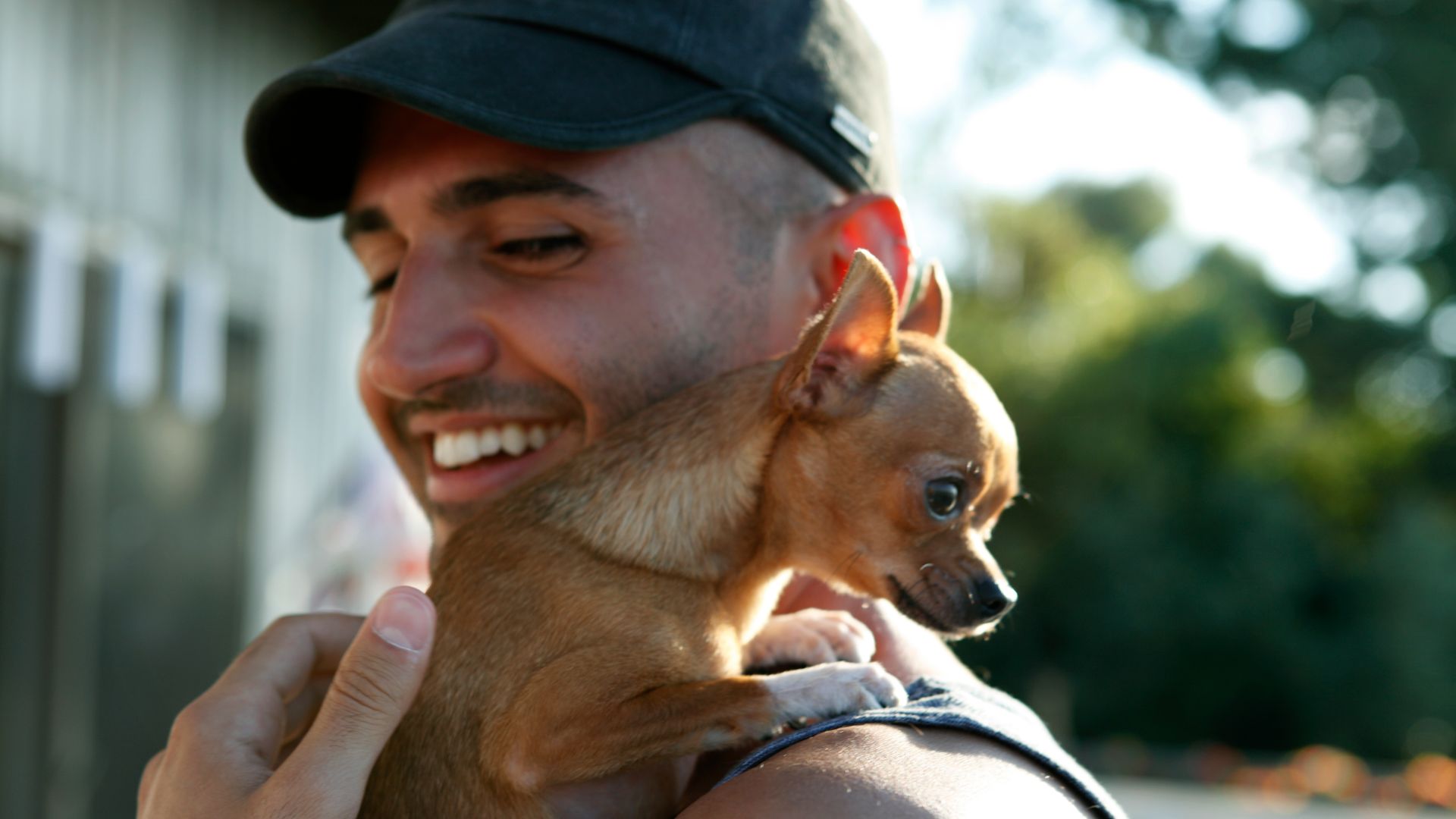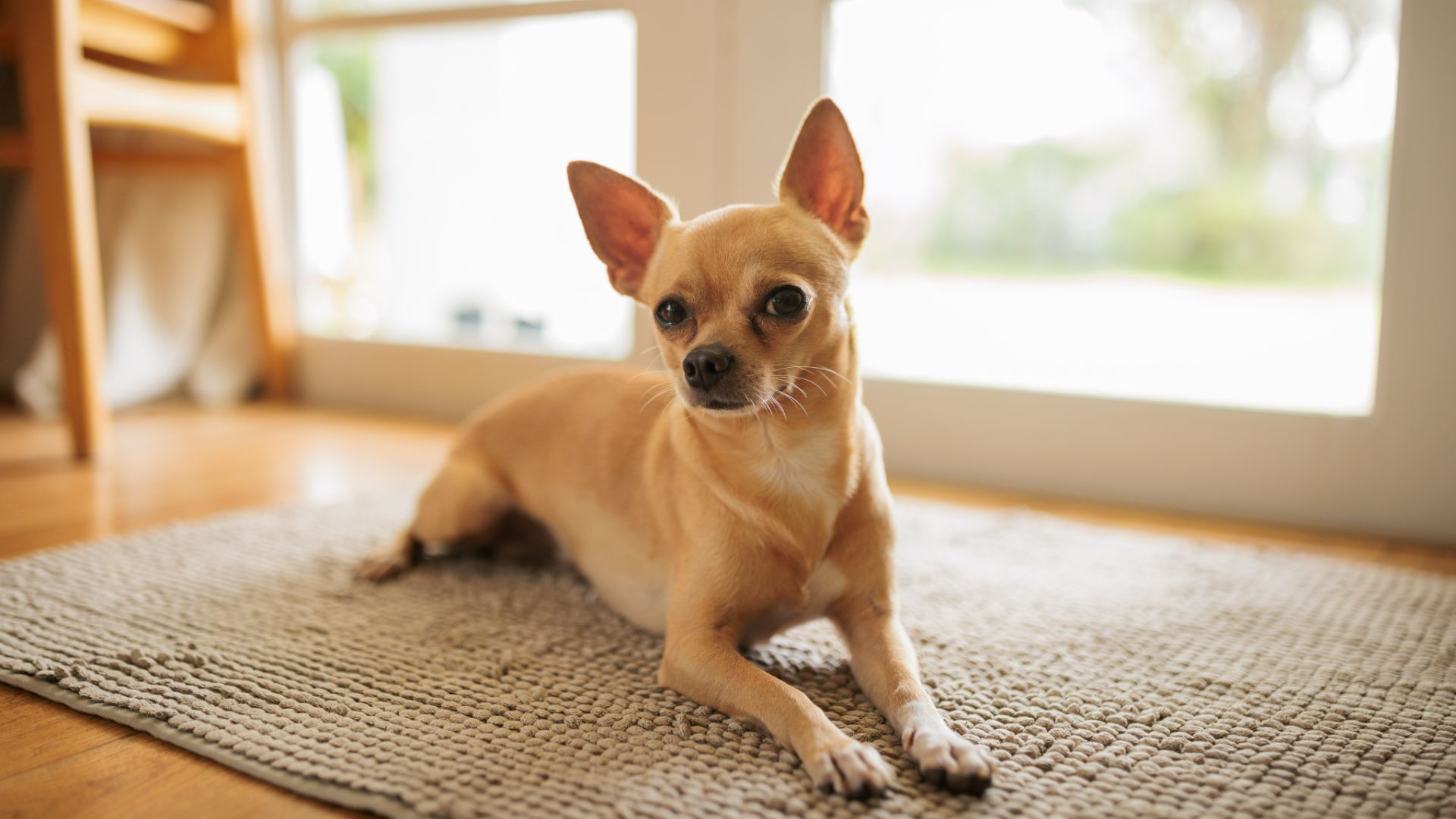
The Chihuahua breed is a popular choice if you're looking for a toy-size breed. While they might be small in size, they are big in personality and aren't afraid to let you know just how they feel.
Chihuahuas can grow to around six to nine inches tall (15-23cm) and anywhere between four to six pounds (1.8- 2.7 kg) when they're fully grown. This pocket-sized breed comes in both short and long coats and can be seen in a variety of colors including chocolate, gold, white, tan, and many others. They can also live well into their teenage years, which is great news if you're looking for one of the best dog breeds for companionship.
Contrary to many stereotypes this is not an aggressive pup and with the right training and socialization practice, this pup can easily and happily live with a family. This breed loves spending time with their loved ones and playing around with some of the best dog toys.
We spoke with vet, Dr. Rebecca MacMillan to find out everything there is to know about this adorable toy dog breed. Let's get into it!

Chihuahua breed temperament and personality

Often referred to as 'purse-dogs' these tiny pups often spend a good amount of time with their owners as they are so easy to carry around. This makes chihuahuas one of the dog breeds most likely to suffer from separation anxiety. So knowing how to reduce separation anxiety in dogs is vital with this breed.
Also, contrary to stereotypes, this is not a naturally aggressive dog. Dr. MacMillan notes that several factors can lead to aggressive behaviors as with any breed. Due to their small size, many pet parents overlook basic training and socialization training, but it is super important just as it is with large-breed dogs. Given the right training and socialization practice, this breed will better adapt to family environments and home living.
Due to their compact size, these pups are perfect lap pets and ideal for pet parents with limited space in their homes. They will be perfectly happy running around apartments chasing after their favorite toys, or strolls around the neighborhood.
Are chihuachuas good family dogs?
Are those adorable pups good for families? Yes! But here are some things to take into consideration. As they are small pups, it is important that they are handled properly. Which can be a tricky thing to teach young children, so they may be better suited to homes with older children.
Dr. MacMillan also says, "Chihuahuas are relatively fragile compared to many other breeds of dog so injury could occur if they are not handled carefully. They also need their personal space which young children may unwittingly invade."
Like any other breed, chihuahuas can become irritable or threatened if they feel their personal space is being invaded. This can lead aggressive behaviors such as growling and biting.
Dr. MacMillan also notes that if your home is filled with hustle and bustle you should take extra care of chihuahuas running around. "Busy households need to make sure that these tiny dogs don’t accidentally get stood on, dropped, or fall from high places like sofas or beds. I have seen many small dogs, including Chihuahuas, with fractured limbs because of mistakes like these. Their ideal home isn’t too hectic, they appreciate their own space and will form close bonds with their owners."
Chihuahuas are loyal to a fault. This can make them wary to unfamiliar visitors. They also appreciate their regular routines and may become unsettled with frequent changes in routines and their home environments.
How much exercise does a chihuahua need?

Luckily, if you are a busy pet parent you won't need to spend hours making sure your pooch gets all the exercise they need each day. They have minimal exercise requirements. Dr. MacMillan says, "Around 30 – 60 minutes per day is required, depending on their age and health. Chihuahuas will also enjoy plenty of play and social interaction between walks."
What should chihuahuas eat?
A high-quality diet of the best dog food will be enough to satisfy these tiny pups. "Due to their tiny size, you will find it won’t cost you too much to feed them the best quality food, compared to a big dog who would need to eat comparatively more," adds Dr. MacMillan.
Health conditions to look out for
There are certain conditions that chihuahua owners should be aware of. This breed can be prone to dental disease and a condition called, luxating patellas. This condition causes the kneecaps to slip in and out of position resulting in limping. If you notice anything different regarding your pup's mobility we recommend making an appointment with your vet right away.
Dr. MacMillan notes pet parents should be aware of another condition. She says, "Hydrocephalus is a serious condition that can unfortunately be seen in Chihuahuas. It is a build-up of fluid around the brain that can cause an enlarged head, bulging eyes, seizures, and loss of coordination amongst other signs. They can be born with it, or they can develop it a bit later in life so you should keep an eye out for the signs."
If you found this feature helpful check out 32 fun facts about chihuahuas.







